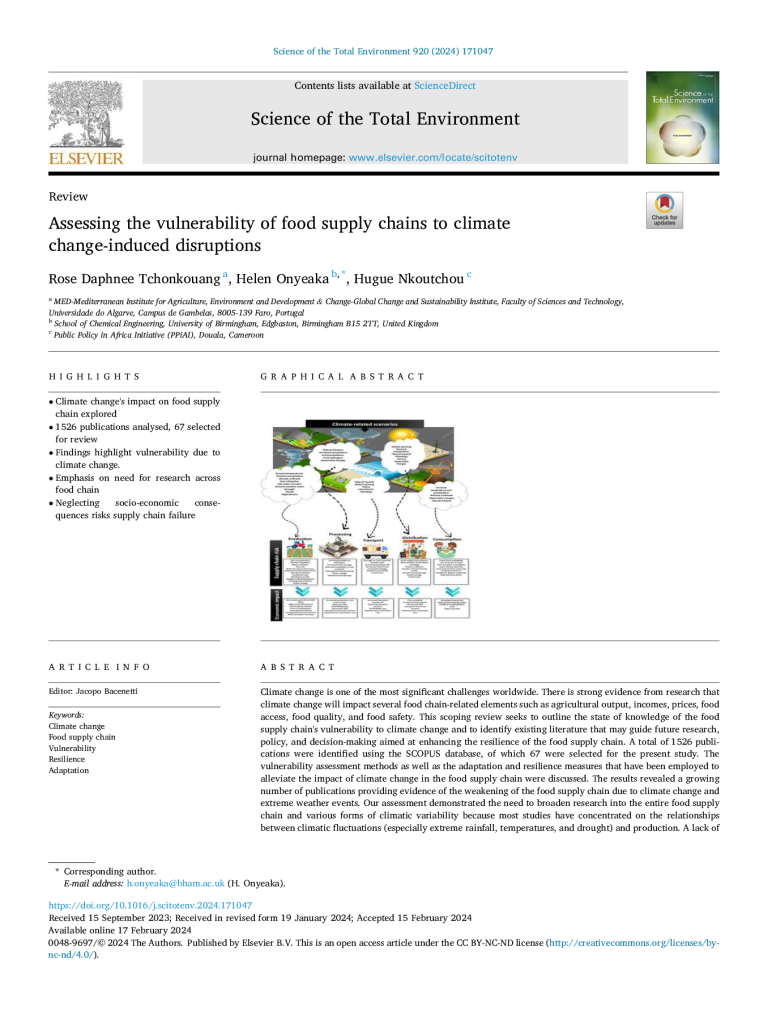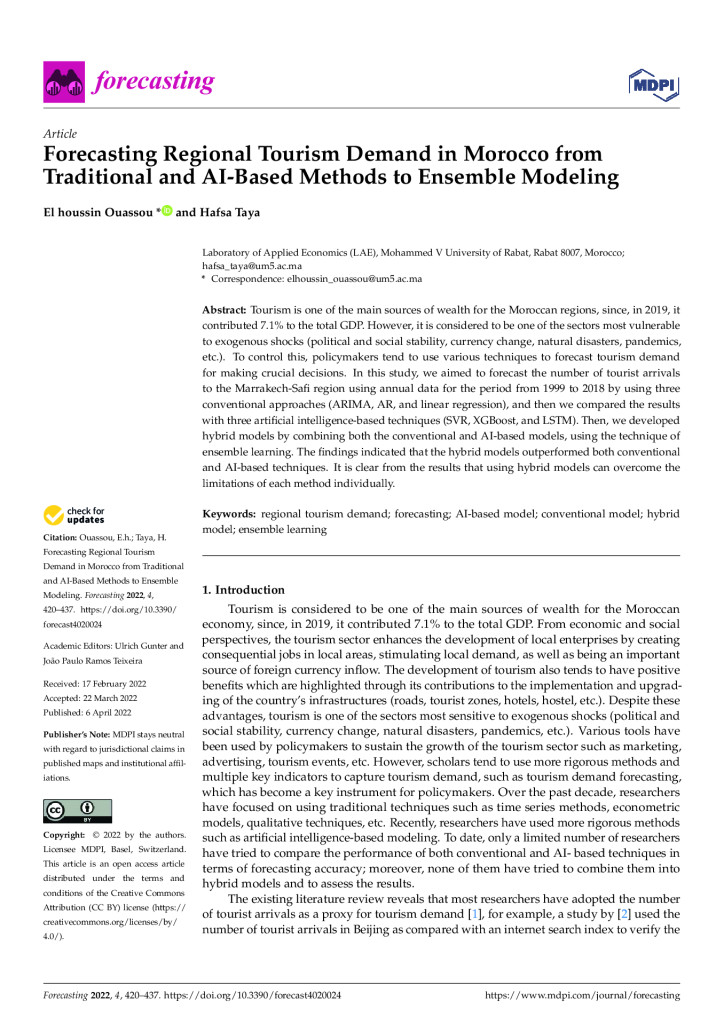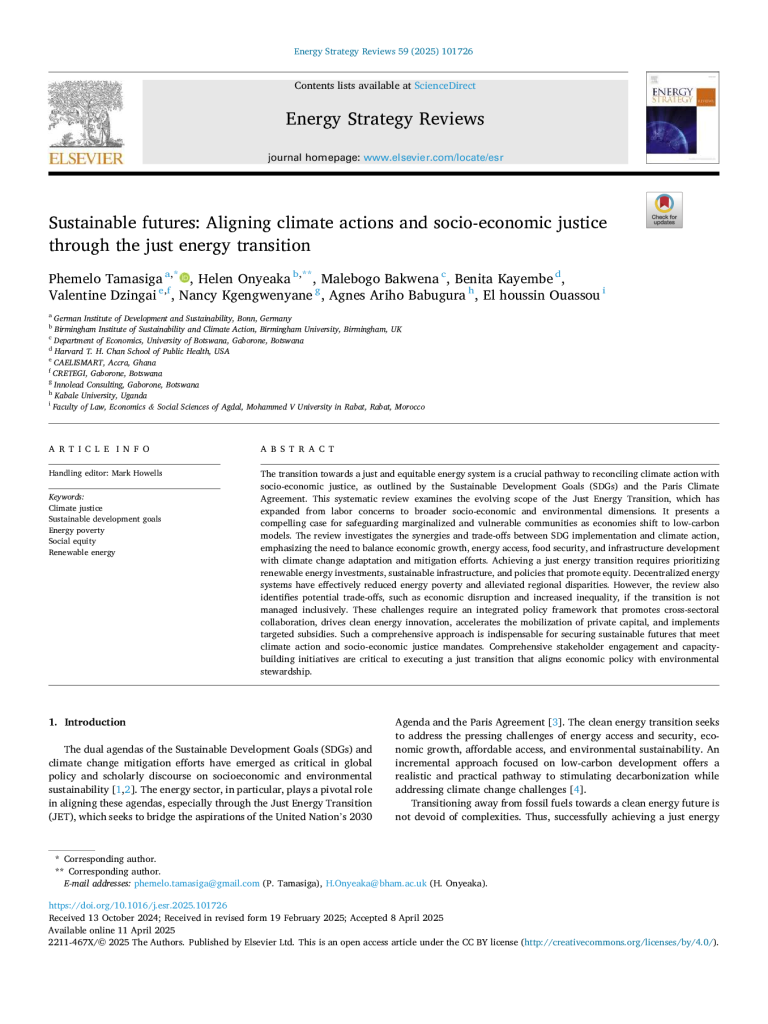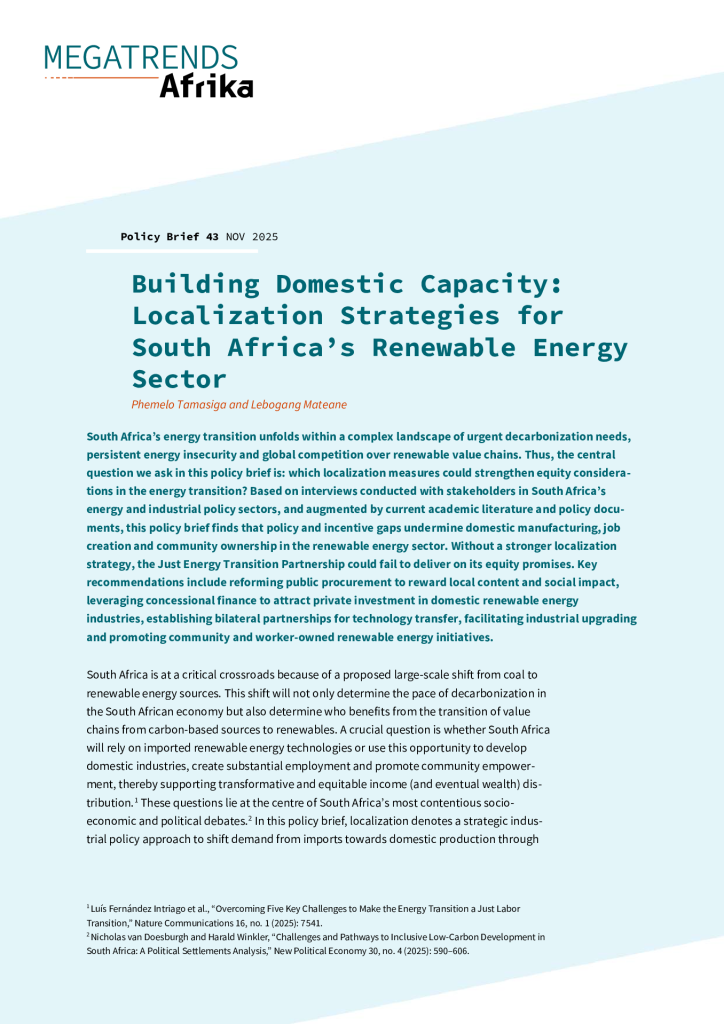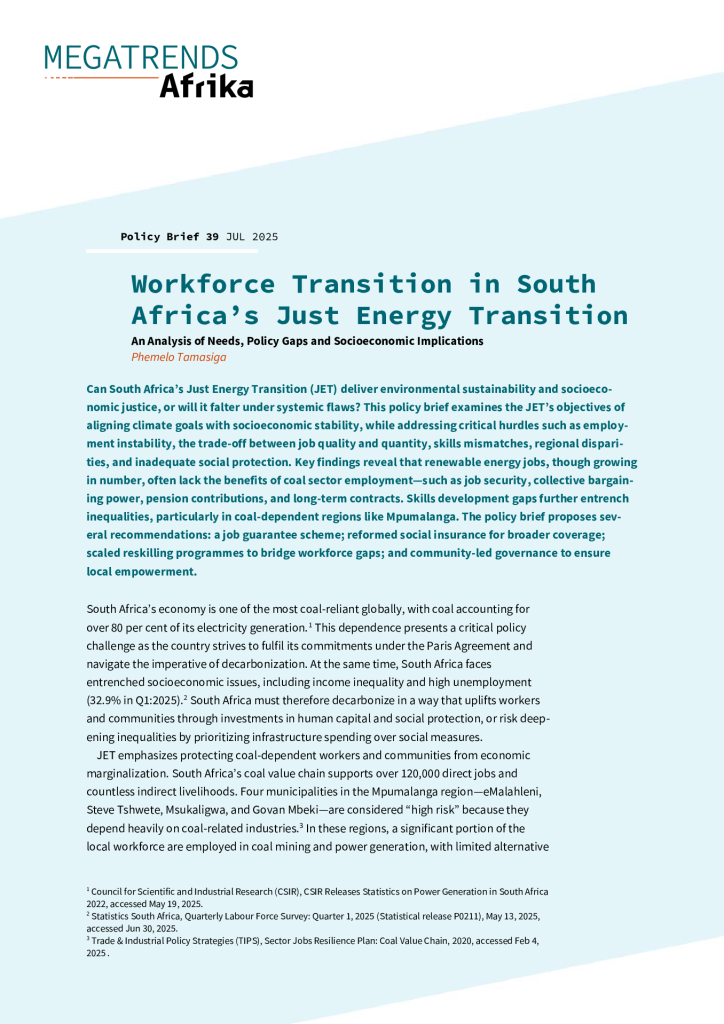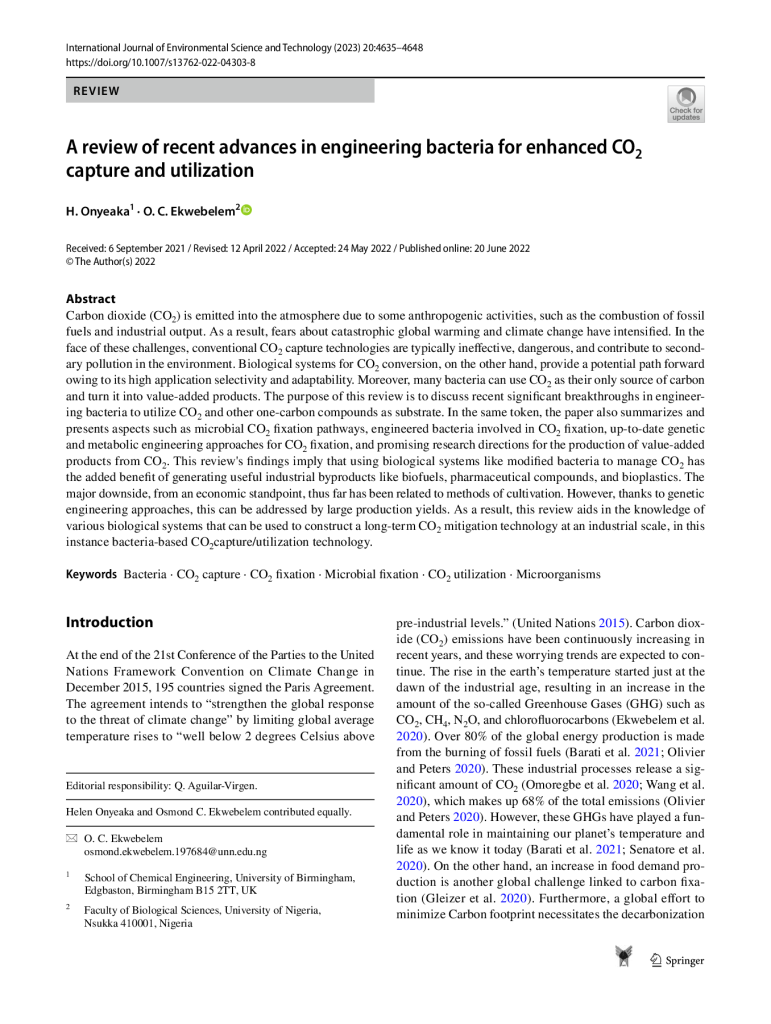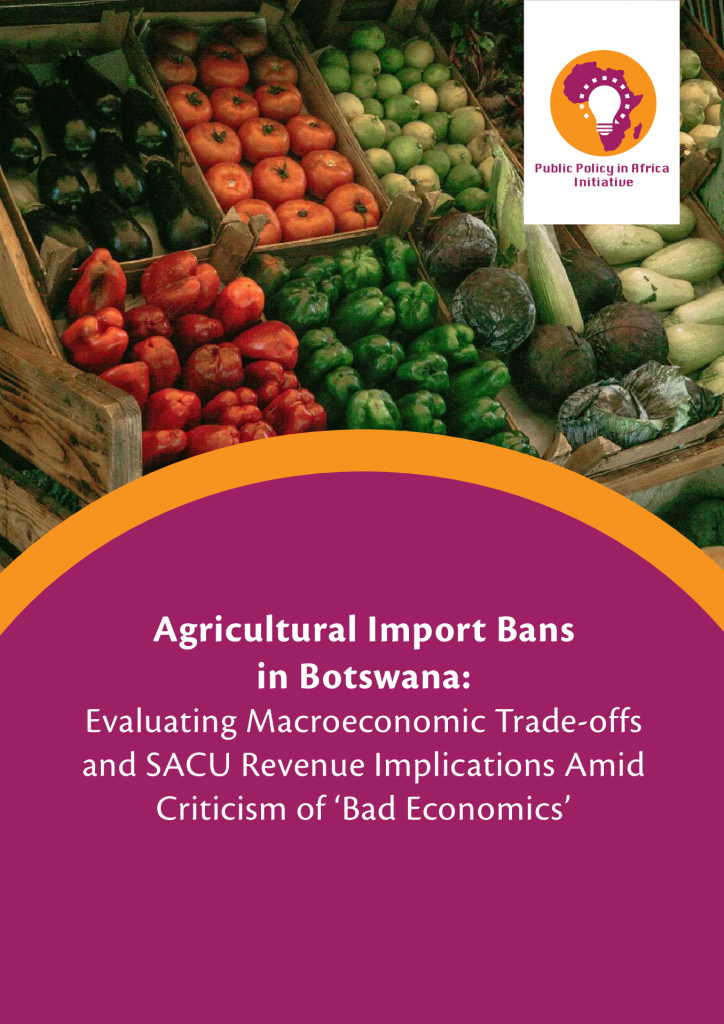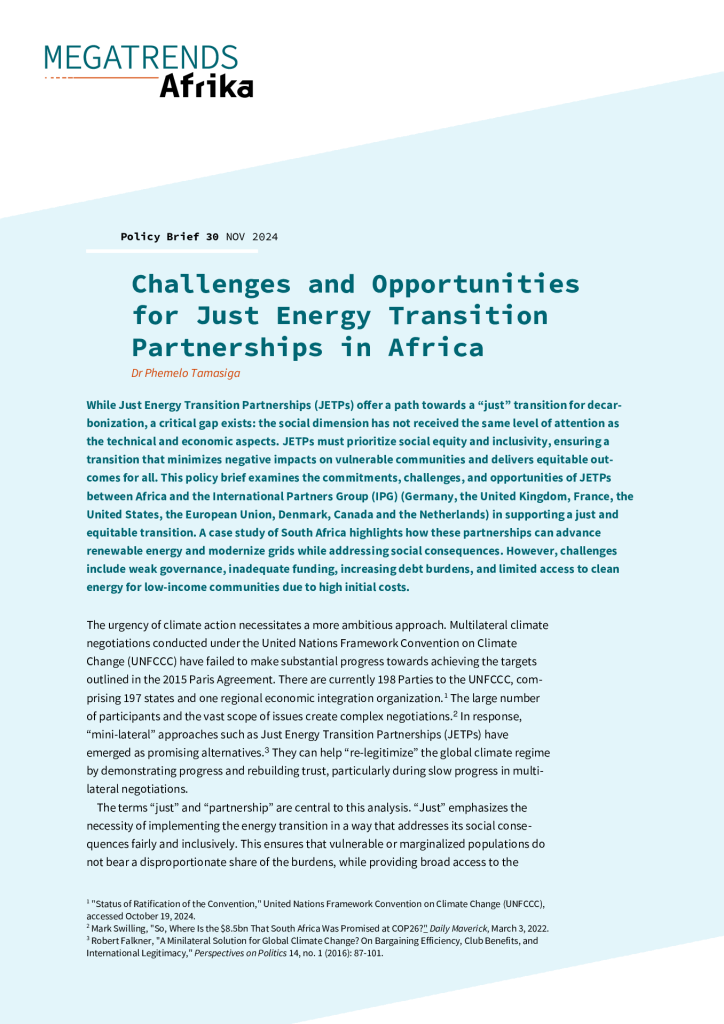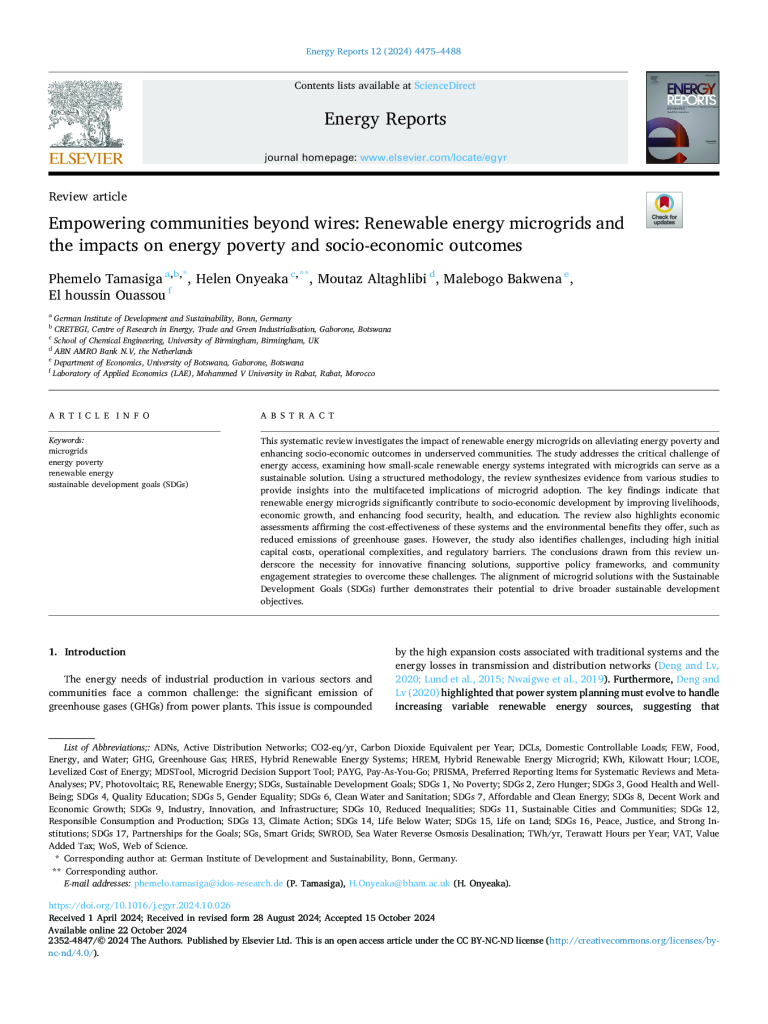Climate actions and socio-economic justice through the energy transition
The transition towards a just and equitable energy system is a crucial pathway to reconciling climate action with socio-economic justice, as outlined by the Sustainable Development Goals (SDGs) and the Paris Climate Agreement. This systematic review examines the evolving scope of the Just Energy Transition, which has expanded from labor concerns to broader socio-economic and environmental dimensions. It presents a compelling case for safeguarding marginalized and vulnerable communities as economies shift to low-carbon models. The review investigates the synergies and trade-offs between SDG implementation and climate action, emphasizing the need to balance economic growth, energy access, food security, and infrastructure development with climate change adaptation and mitigation efforts. Achieving a just energy transition requires prioritizing renewable energy investments, sustainable infrastructure, and policies that promote equity. Decentralized energy systems have effectively reduced energy poverty and alleviated regional disparities. However, the review also identifies potential trade-offs, such as economic disruption and increased inequality, if the transition is not managed inclusively. These challenges require an integrated policy framework that promotes cross-sectoral collaboration, drives clean energy innovation, accelerates the mobilization of private capital, and implements targeted subsidies. Such a comprehensive approach is indispensable for securing sustainable futures that meet climate action and socio-economic justice mandates. Comprehensive stakeholder engagement and capacity-building initiatives are critical to executing a just transition that aligns economic policy with environmental stewardship.

